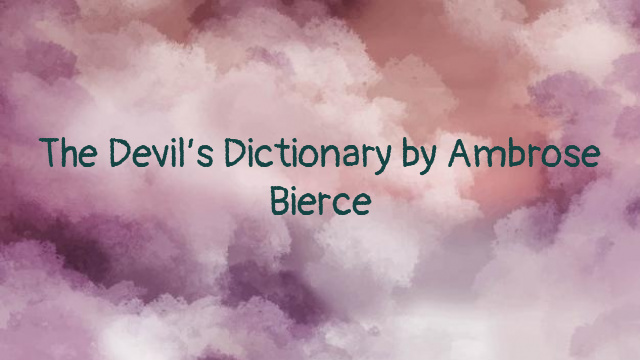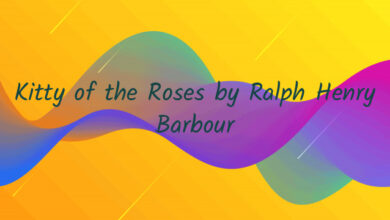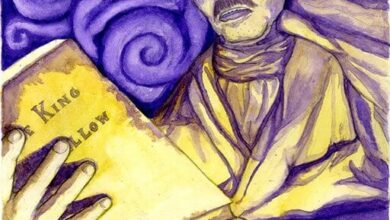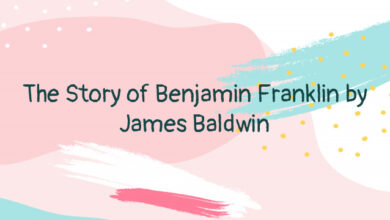
The Devil’s Dictionary by Ambrose Bierce
Originally published as The Cynic’s Word Book, Ambrose Bierce’s wickedly satirical “reference book” was retitled The Devil’s Dictionary in 1911.
Preface
The Devil’s Dictionary was begun in a weekly paper in 1881, and was continued in a desultory way at long intervals until 1906. In that year a large part of it was published in covers with the title The Cynic’s Word Book, a name which the author had not the power to reject or happiness to approve. To quote the publishers of the present work: “This more reverent title had previously been forced upon him by the religious scruples of the last newspaper in which a part of the work had appeared, with the natural consequence that when it came out in covers the country already had been flooded by its imitators with a score of ‘cynic’ books — The Cynic’s This, The Cynic’s That, and The Cynic’s Other. Most of these books were merely stupid, though some of them added the distinction of silliness. Among them, they brought the word “cynic” into disfavor so deep that any book bearing it was discredited in advance of publication. Meantime, too, some of the enterprising humorists of the country had helped themselves to such parts of the work as served their needs, and many of its definitions, anecdotes, phrases and so forth, had become more or less current in popular speech. This explanation is made, not with any pride of priority in trifles, but in simple denial of possible charges of plagiarism, which is no trifle. In merely resuming his own the author hopes to be held guiltless by those to whom the work is addressed — enlightened souls who prefer dry wines to sweet, sense to sentiment, wit to humor and clean English to slang. A conspicuous, and it is hope not unpleasant, feature of the book is its abundant illustrative quotations from eminent poets, chief of whom is that learned and ingenius cleric, Father Gassalasca Jape, S.J., whose lines bear his initials. To Father Jape’s kindly encouragement and assistance the author of the prose text is greatly indebted.
Whether on the gallows high
Or where blood flows the reddest,
The noblest place for man to die --
Is where he died the deadest.
(Old play)
Observe with care, my son, the distinction I reveal:
A gentleman is gentle and a gent genteel.
Heed not the definitions your "Unabridged" presents,
For dictionary makers are generally gents.
G.J.
Habeam, geographer of wide reknown,
Native of Abu-Keber's ancient town,
In passing thence along the river Zam
To the adjacent village of Xelam,
Bewildered by the multitude of roads,
Got lost, lived long on migratory toads,
Then from exposure miserably died,
And grateful travelers bewailed their guide.
Henry Haukhorn
He saw a ghost.
It occupied -- that dismal thing! --
The path that he was following.
Before he'd time to stop and fly,
An earthquake trifled with the eye
That saw a ghost.
He fell as fall the early good;
Unmoved that awful vision stood.
The stars that danced before his ken
He wildly brushed away, and then
He saw a post.
Jared Macphester
Accounting for the uncommon behavior of ghosts, Heine mentions somebody's ingenious theory to the effect that they are as much afraid of us as we of them. Not quite, if I may judge from such tables of comparative speed as I am able to compile from memories of my own experience.There is one insuperable obstacle to a belief in ghosts. A ghost never comes naked: he appears either in a winding-sheet or "in his habit as he lived." To believe in him, then, is to believe that not only have the dead the power to make themselves visible after there is nothing left of them, but that the same power inheres in textile fabrics. Supposing the products of the loom to have this ability, what object would they have in exercising it? And why does not the apparition of a suit of clothes sometimes walk abroad without a ghost in it? These be riddles of significance. They reach away down and get a convulsive grip on the very tap-root of this flourishing faith.
A hunter from Kew caught a distant view
Of a peacefully meditative gnu,
And he said: "I'll pursue, and my hands imbrue
In its blood at a closer interview."
But that beast did ensue and the hunter it threw
O'er the top of a palm that adjacent grew;
And he said as he flew: "It is well I withdrew
Ere, losing my temper, I wickedly slew
That really meritorious gnu."
Jarn Leffer
of the fowl's thought and feeling. The difference in geese, as discovered by this ingenious method, is considerable: many are found to have only trivial and insignificant powers, but some are seen to be very great geese indeed.
The Gorgon was a maiden bold
Who turned to stone the Greeks of old
That looked upon her awful brow.
We dig them out of ruins now,
And swear that workmanship so bad
Proves all the ancient sculptors mad.
Hail noble fruit! -- by Homer sung,
Anacreon and Khayyam;
Thy praise is ever on the tongue
Of better men than I am.
The lyre in my hand has never swept,
The song I cannot offer:
My humbler service pray accept --
I'll help to kill the scoffer.
The water-drinkers and the cranks
Who load their skins with liquor --
I'll gladly bear their belly-tanks
And tap them with my sticker.
Fill up, fill up, for wisdom cools
When e'er we let the wine rest.
Here's death to Prohibition's fools,
And every kind of vine-pest!
Jamrach Holobom
Beside a lonely grave I stood --
With brambles 'twas encumbered;
The winds were moaning in the wood,
Unheard by him who slumbered,
A rustic standing near, I said:
"He cannot hear it blowing!"
"'Course not," said he: "the feller's dead --
He can't hear nowt [sic] that's going."
"Too true," I said; "alas, too true --
No sound his sense can quicken!"
"Well, mister, wot is that to you? --
The deadster ain't a-kickin'."
I knelt and prayed: "O Father, smile
On him, and mercy show him!"
That countryman looked on the while,
And said: "Ye didn't know him."
Pobeter Dunko
"I'm great," the Lion said -- "I reign
The monarch of the wood and plain!"
The Elephant replied: "I'm great --
No quadruped can match my weight!"
"I'm great -- no animal has half
So long a neck!" said the Giraffe.
"I'm great," the Kangaroo said -- "see
My femoral muscularity!"
The 'Possum said: "I'm great -- behold,
My tail is lithe and bald and cold!"
An Oyster fried was understood
To say: "I'm great because I'm good!"
Each reckons greatness to consist
In that in which he heads the list,
And Vierick thinks he tops his class
Because he is the greatest ass.
Arion Spurl Doke
value, admirably adapted to this climate. The good Secretary was instructed to spill it along in a furrow and afterward inhume it with soil. This he at once proceeded to do, and had made a continuous line of it all the way across a ten-acre field, when he was made to look backward by a shout from the generous donor, who at once dropped a lighted match into the furrow at the starting-point. Contact with the earth had somewhat dampened the powder, but the startled functionary saw himself pursued by a tall moving pillar of fire and smoke and fierce evolution. He stood for a moment paralyzed and speechless, then he recollected an engagement and, dropping all, absented himself thence with such surprising celerity that to the eyes of spectators along the route selected he appeared like a long, dim streak prolonging itself with inconceivable rapidity through seven villages, and audibly refusing to be comforted. "Great Scott! what is that?" cried a surveyor's chainman, shading his eyes and gazing at the fading line of agriculturist which bisected his visible horizon. "That," said the surveyor, carelessly glancing at the phenomenon and again centering his attention upon his instrument, "is the Meridian of Washington."




